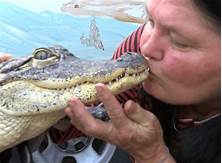Can I Buy a Pet Monkey?
Owning a pet monkey may seem like a charming idea, but it is essential to consider the realities and responsibilities associated with such a commitment. Before making any decisions, it is crucial to understand the legal, ethical, and practical implications of owning a pet monkey.

Legality of Owning a Pet Monkey
1. Legal Restrictions: In many countries and regions, it is illegal to own a pet monkey as they are considered wild animals. These laws are in place to protect both humans and monkeys and to prevent potential harm to either party.
2. CITES Regulations: Additionally, the Convention on International Trade in Endangered Species of Wild Fauna and Flora (CITES) regulates the international trade of primates, including pet monkeys. It is crucial to ensure that the trade in pet monkeys is compliant with CITES regulations, which aim to protect endangered species.
Ethical Considerations
1. Wild and Captive Life: Monkeys are wild animals adapted to live in the wild. Keeping them in captivity can deprive them of their freedom and natural behaviors, potentially leading to psychological distress and physical health issues.
2. Social Needs: Monkeys are social creatures that live in groups and rely on interaction for well-being. A single pet monkey may experience loneliness, isolation, and boredom, leading to mental health problems.
Practical Considerations
1. Diet and Nutrition: Monkeys have specific dietary needs that may be difficult to replicate in a home environment. Their diets typically consist of fruits, vegetables, insects, and occasionally small vertebrates, requiring specialized care.
2. Housing and Environment: Monkeys need adequate space to move, climb, and engage in natural behaviors. They require a spacious and enriched environment that closely mimics their natural habitat.
3. Veterinary Care: Monkeys can be susceptible to various illnesses and diseases that require specialized veterinary care. Finding experienced veterinarians knowledgeable about monkey care can be challenging and costly.
Alternatives to Owning a Pet Monkey
1. Wildlife Sanctuaries: If you are passionate about monkeys, consider volunteering or supporting organizations that work to protect and care for rescued monkeys in wildlife sanctuaries.
2. Documentaries and Educational Programs: Learn about monkeys through documentaries, books, and educational programs that can provide valuable insights into their natural behaviors and the importance of conservation efforts.
3. Wildlife Parks and Zoos: Visiting wildlife parks and zoos that provide ethical and compassionate care for monkeys can offer opportunities to observe and appreciate these fascinating animals.
Ultimately, owning a pet monkey is a complex decision with significant legal, ethical, and practical considerations. Before making such a commitment, carefully weigh the potential risks and challenges against the benefits. Always prioritize the well-being and safety of both the animal and yourself.
Declaration: All article resources on this website, unless otherwise specified or labeled, are collected from online resources. If the content on this website infringes on the legitimate rights and interests of the original author, you can contact this website to delete it.




